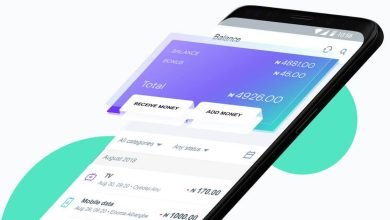Soft Loans in Nigeria – Meaning and All You Need to Know

Soft Loans in Nigeria – Soft loans are a popular financing option for businesses and individuals who need access to funds without having to go through the rigorous process of obtaining a traditional loan. In this article, we will explore what soft loans are, how they work, their benefits and drawbacks, and everything else you need to know about them.
What are Soft Loans?
Soft loans, also known as concessional loans, are loans offered by individuals, organizations, or government agencies with relaxed terms and conditions compared to traditional loans. Soft loans are often given to individuals and businesses that may not qualify for traditional loans due to their credit score, lack of collateral, or other reasons.
How Do Soft Loans Work?
Soft loans work similarly to traditional loans, with the main difference being the terms and conditions. Soft loans typically have lower interest rates, longer repayment terms, and flexible repayment options. They may also offer other benefits, such as no collateral requirement and lower fees.
Types of Soft Loans
There are two main types of soft loans: personal and business soft loans.
1: Personal Soft Loans
Personal soft loans are designed for individuals who need access to funds for personal use. These loans are often used to finance education, medical expenses, or other personal needs. Personal soft loans typically have lower interest rates than traditional personal loans and may offer flexible repayment options.
2: Business Soft Loans
Business soft loans are designed for businesses that need access to funds for various reasons, such as working capital, expansion, or equipment purchase. Business soft loans may be offered by government agencies, non-profit organizations, or private lenders. These loans typically have longer repayment terms and lower interest rates than traditional business loans.
Soft Loans vs. Traditional Loans
The Soft loans and traditional loans differ in several ways. Soft loans typically have lower interest rates, longer repayment terms, and relaxed eligibility requirements compared to traditional loans. Traditional loans, on the other hand, may offer higher funding amounts and more stringent eligibility requirements, but with higher interest rates and shorter repayment terms.
Soft Loans and Credit Scores
One of the main advantages of soft loans is that they may be available to borrowers with lower credit scores or no credit history. This makes them a popular option for individuals and businesses that may not qualify for traditional loans.
However, some soft loans may still require a minimum credit score or credit check, so it is important to check with the lender before applying.
Soft Loans for Startups
Soft loans can be a great option for startups that need funding to get off the ground. Many government agencies and non-profit organizations offer soft loans specifically for startups, with relaxed eligibility requirements and favorable terms and conditions.
Soft Loans for Small Businesses
Small businesses can also benefit from soft loans, which can provide access to funding for various needs such as working capital, inventory purchase, or equipment upgrade. Soft loans for small businesses may be offered by government agencies, non-profit organizations, or private lenders.
Soft Loans for Students
Soft loans are also available for students who need access to funds for education-related expenses such as tuition, books, and housing. These loans often have favorable terms and conditions, including low-interest rates and flexible repayment options.
Soft Loans for Emergencies
Soft loans can be a useful option for individuals and businesses that need access to funds quickly in case of an emergency. Many organizations offer emergency soft loans with relaxed eligibility requirements and fast processing times.
Soft Loans and Government Programs
Soft loans are often offered as part of government programs aimed at promoting economic development, supporting small businesses, or providing assistance to individuals in need. These programs may include grants, subsidies, and other forms of financial assistance in addition to soft loans.
Advantages of Soft Loans
Soft loans offer several advantages over traditional loans, including:
1: Easy Access to Funds
Soft loans are easier to obtain than traditional loans, as they often have relaxed eligibility requirements and fewer application procedures.
2: Flexible Repayment Terms
Soft loans typically have flexible repayment terms, with longer repayment periods and lower monthly payments. This makes them easier to manage and can help borrowers avoid defaulting on their loans.
3: Low-Interest Rates
Soft loans often have lower interest rates than traditional loans, which can save borrowers money in the long run.
Disadvantages of Soft Loans
Despite their advantages, soft loans also have some disadvantages, including:
1: Limited Funding
Soft loans often have lower funding amounts than traditional loans, which may not be enough to cover all of the borrower’s needs.
2: Qualification Requirements
Soft loans may have stricter qualification requirements than traditional loans, such as a minimum credit score or income level.
3: Short Repayment Terms
Some soft loans may have shorter repayment terms than traditional loans, which can make them harder to manage and lead to higher monthly payments.
Who Provides Soft Loans in Nigeria?
There are several institutions in Nigeria that provide soft loans. The Central Bank of Nigeria (CBN) is one of the primary sources of soft loans in the country. Commercial banks and microfinance banks also provide soft loans to businesses and individuals.
Requirements for Obtaining Soft Loans in Nigeria
To obtain a soft loan in Nigeria, there are certain requirements that must be met. These include collateral, credit history, a business plan, and guarantors. Interest rates may also vary depending on the type of loan.
How to Apply for a Soft Loan
To apply for a soft loan, you will need to contact the lender or organization offering the loan and provide the necessary documents and information. The requirements may vary depending on the lender and the type of loan, but typically include proof of income, identification, and a completed application form.
It is important to carefully review the terms and conditions of the loan before accepting it to ensure that you understand the repayment terms and any fees associated with the loan.
Conclusion
Soft loans are a useful financing option for individuals and businesses that need access to funds with relaxed terms and conditions. Soft loans offer several advantages over traditional loans, including lower interest rates, longer repayment terms, and flexible eligibility requirements. However, they also have some drawbacks, such as limited funding and stricter qualification requirements. It is important to carefully consider the pros and cons of soft loans before applying to ensure that they are the right option for your needs.



